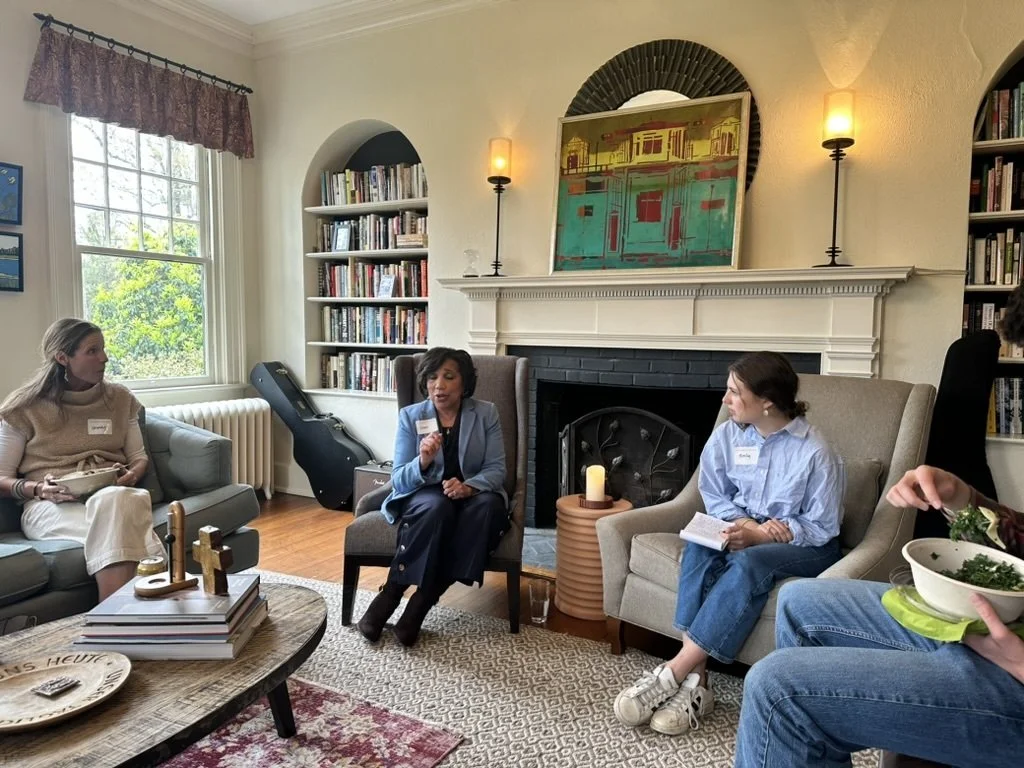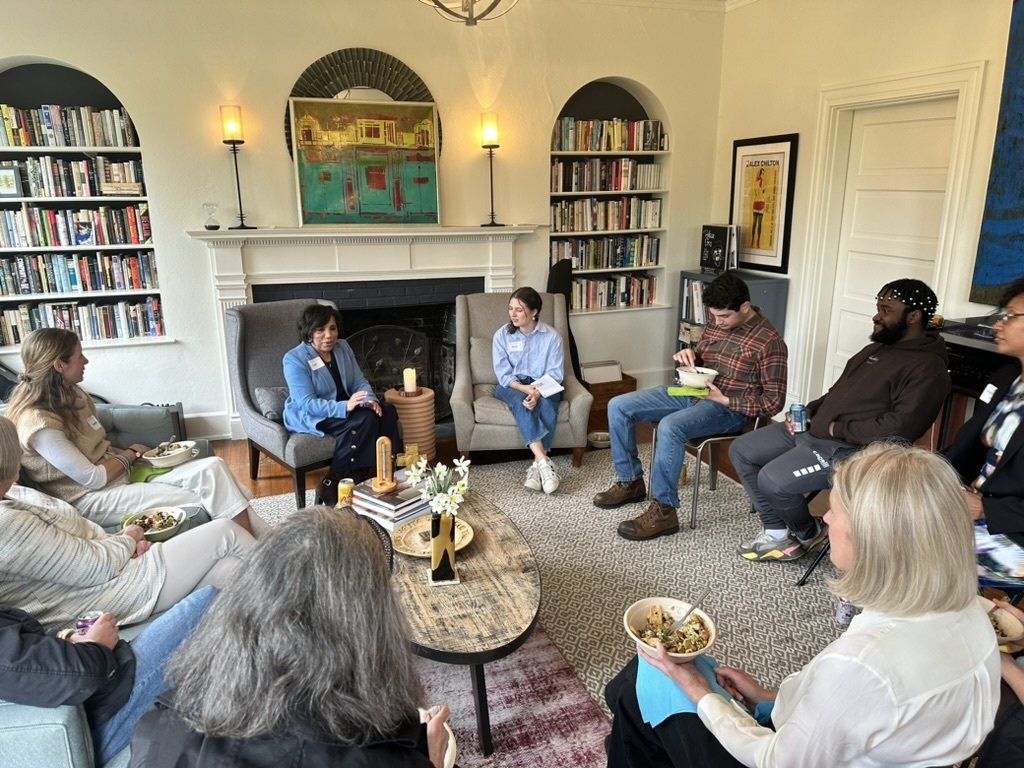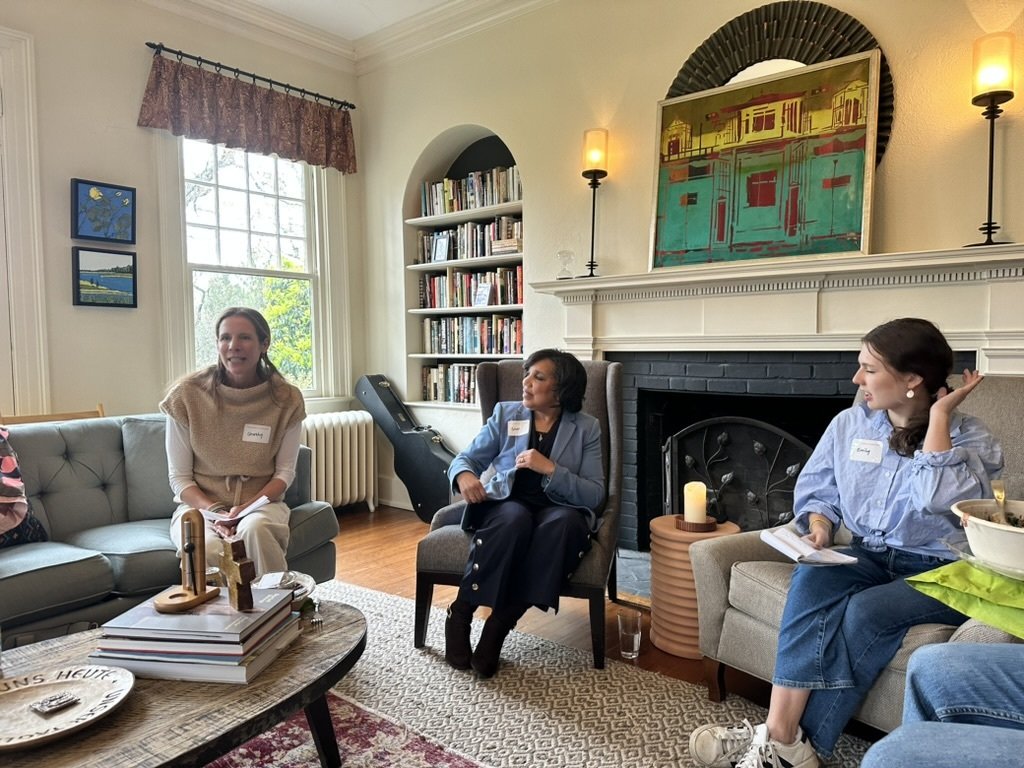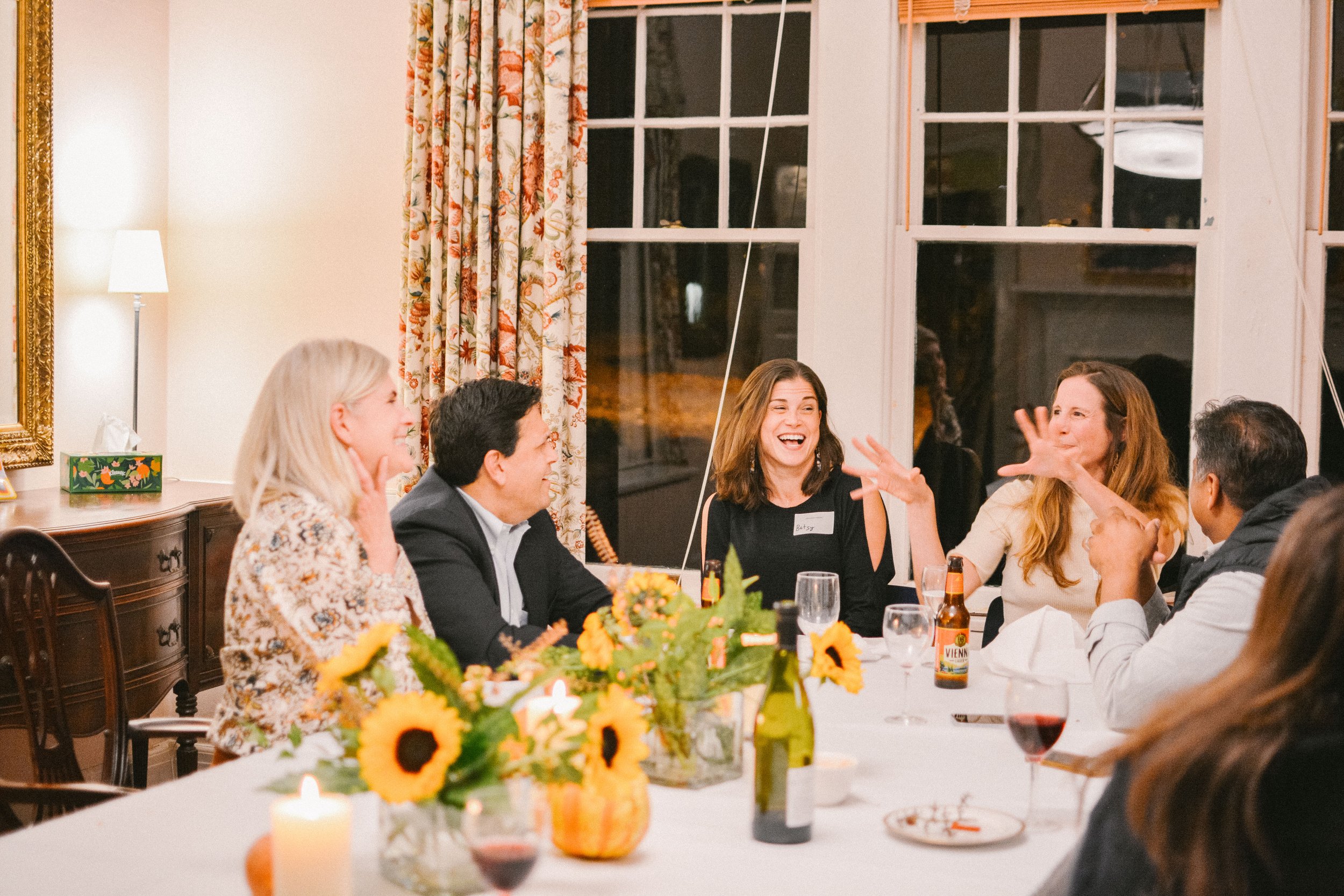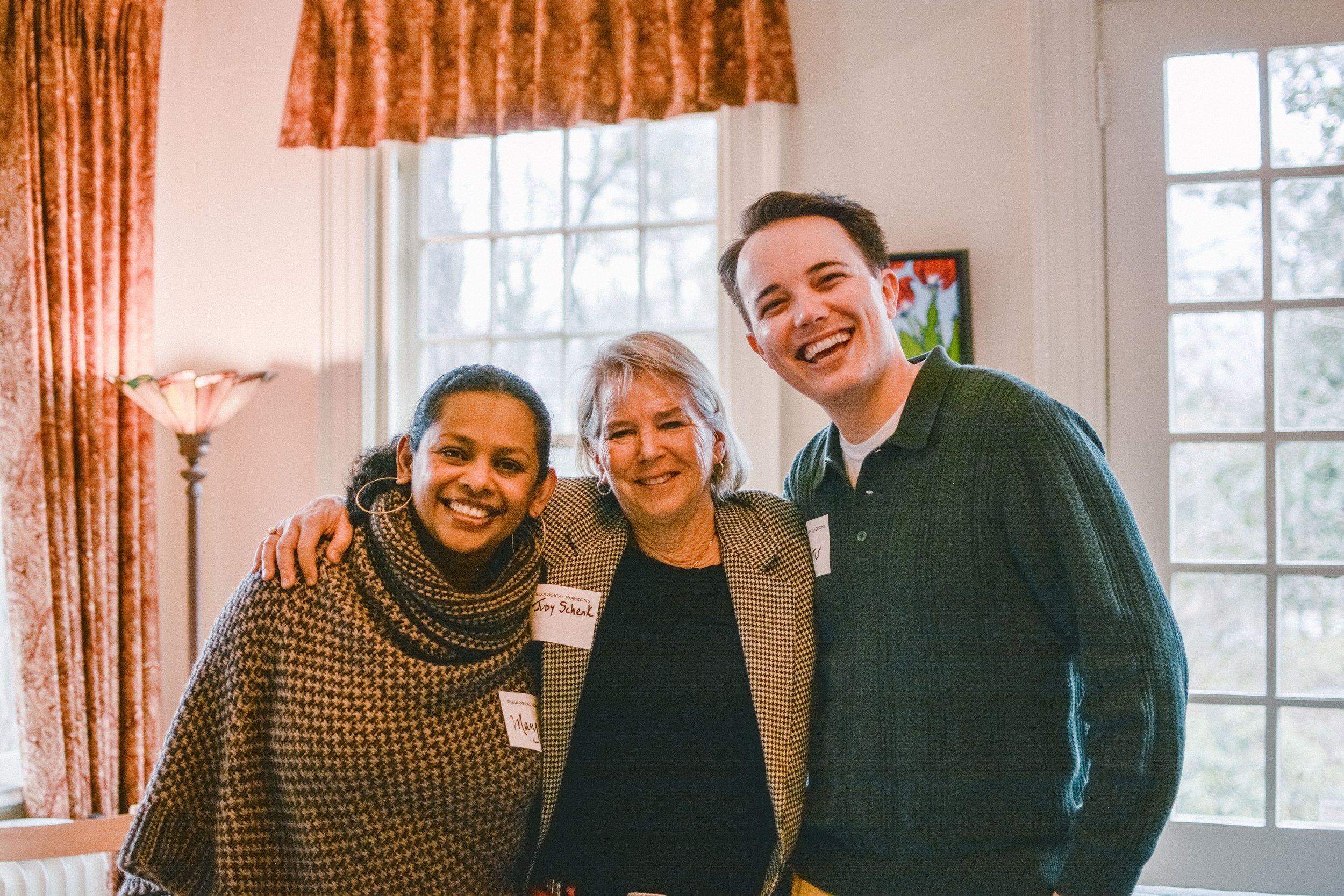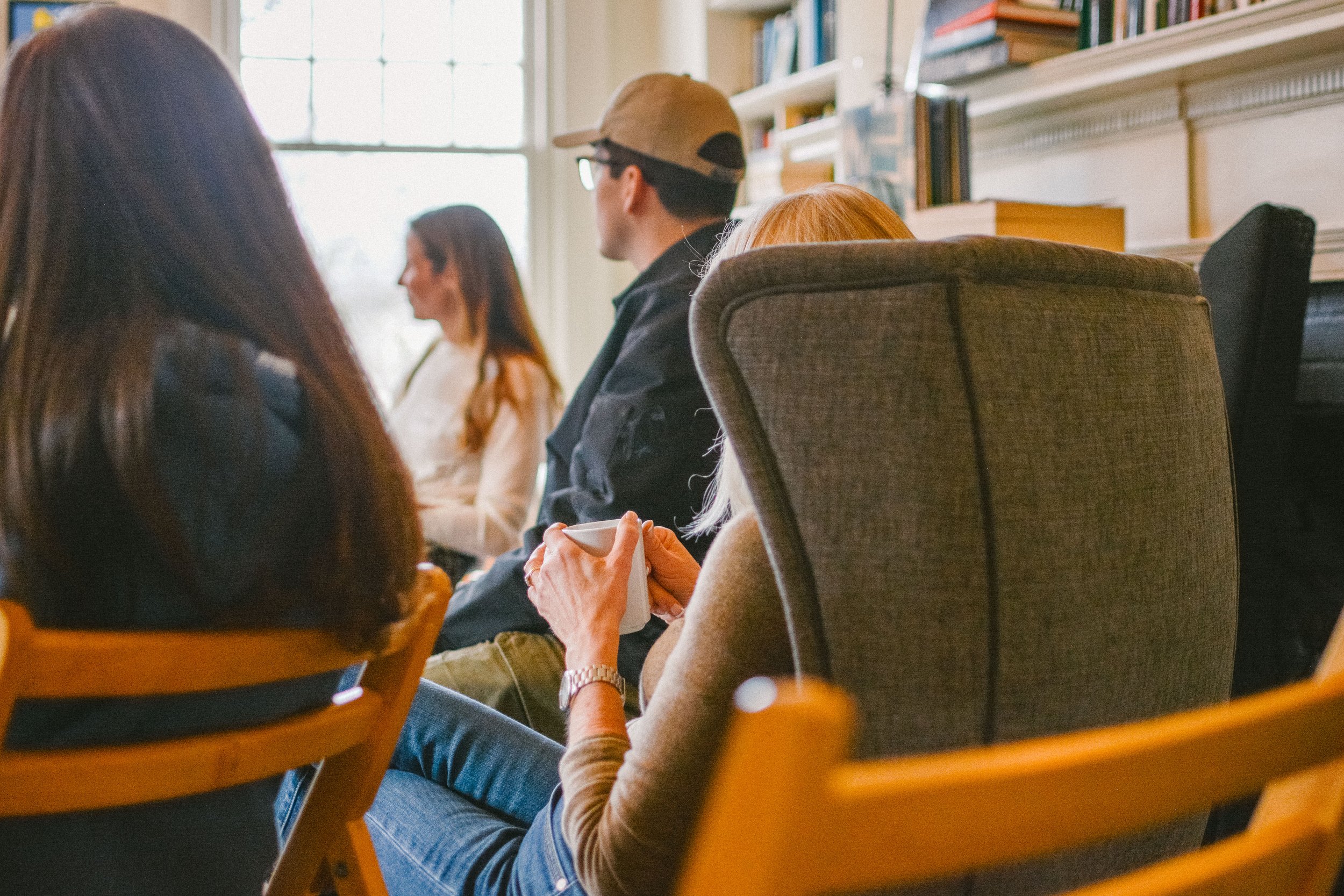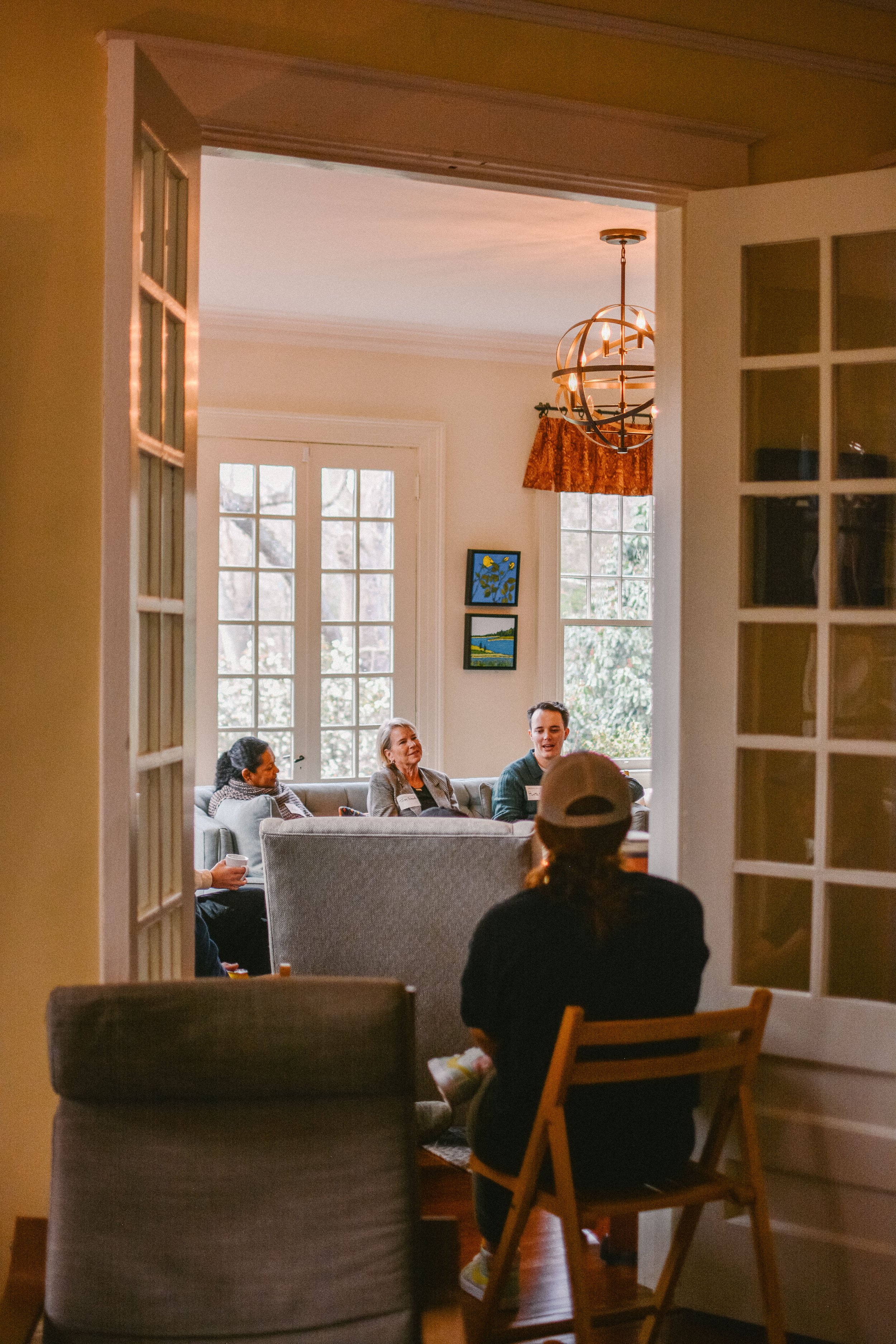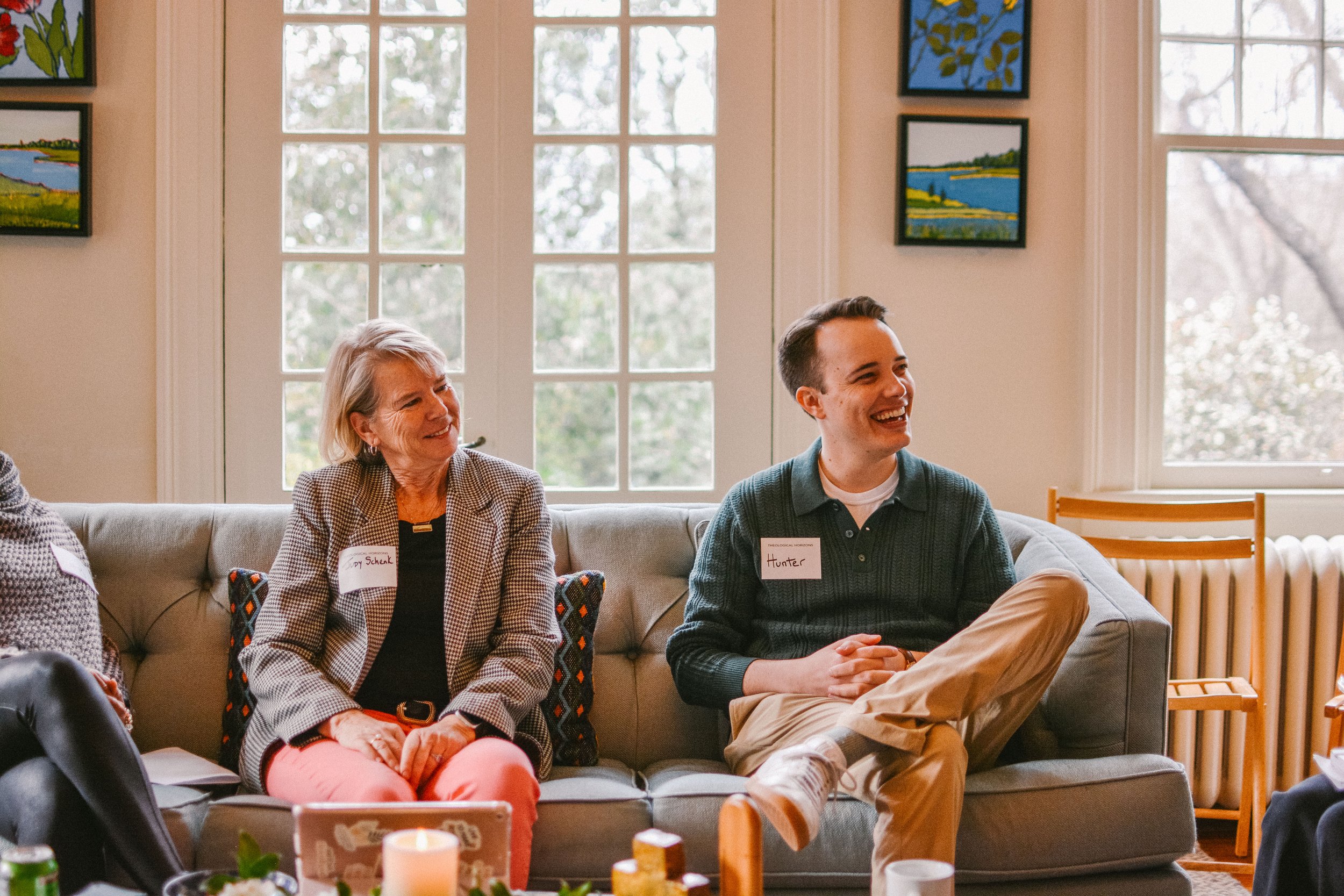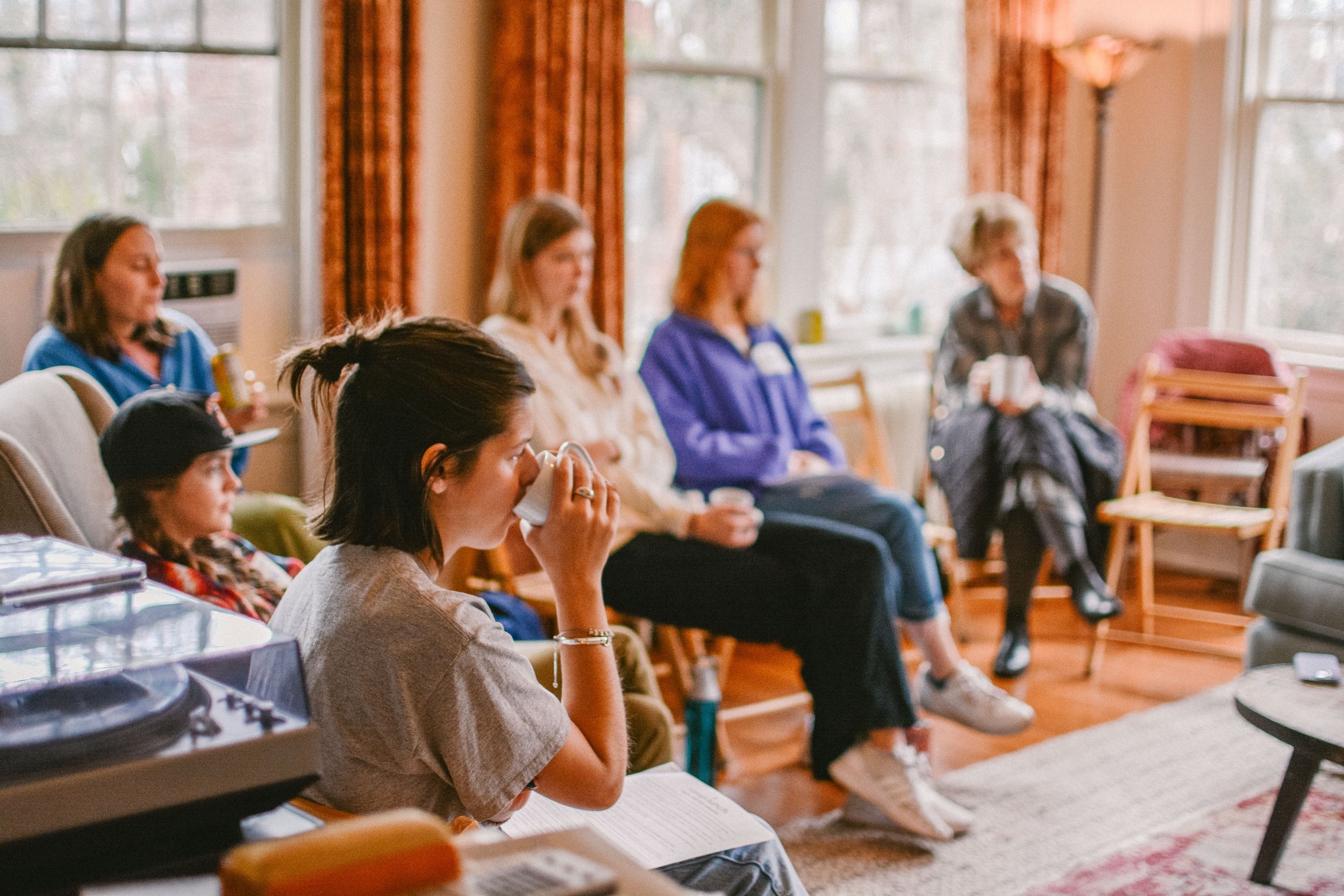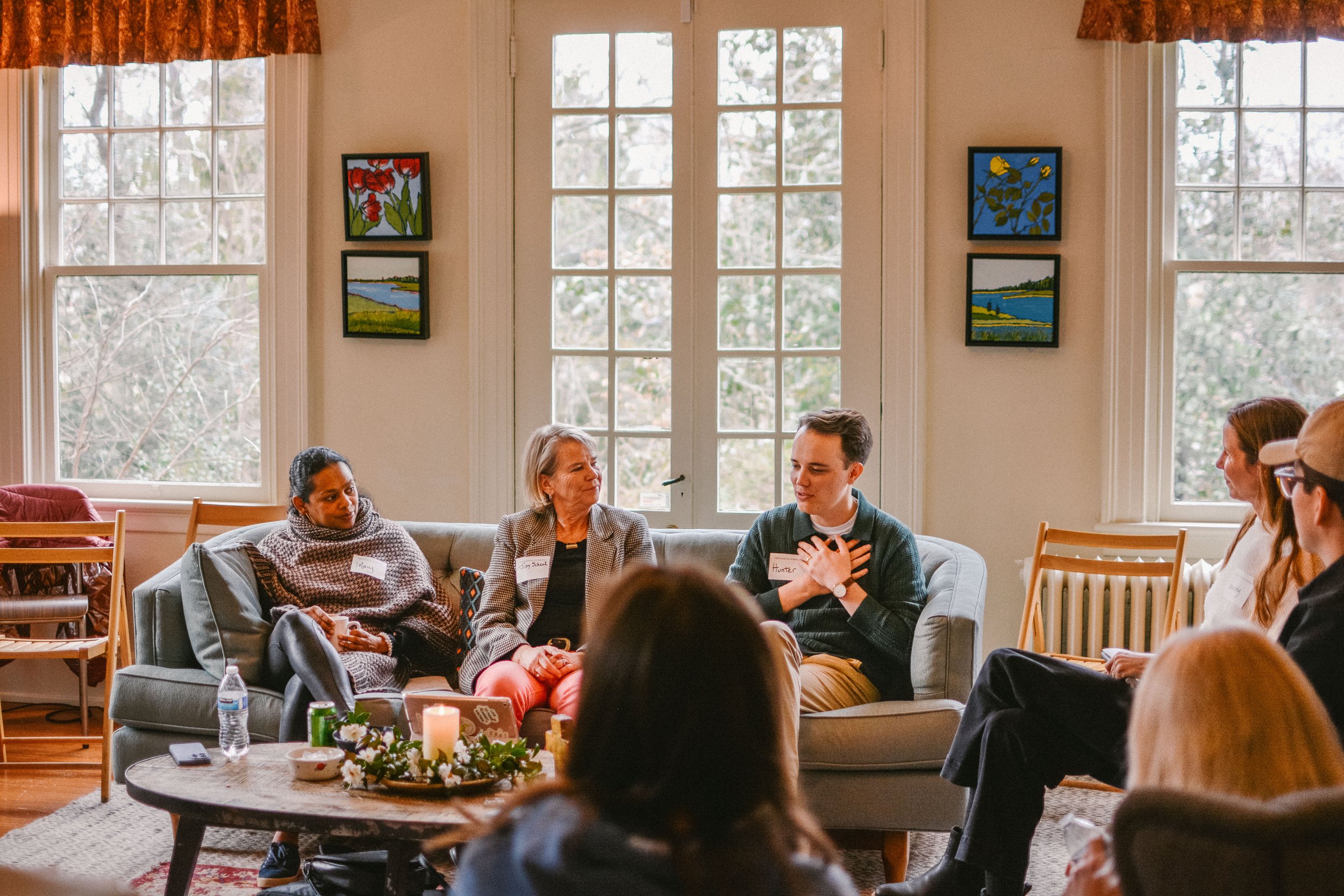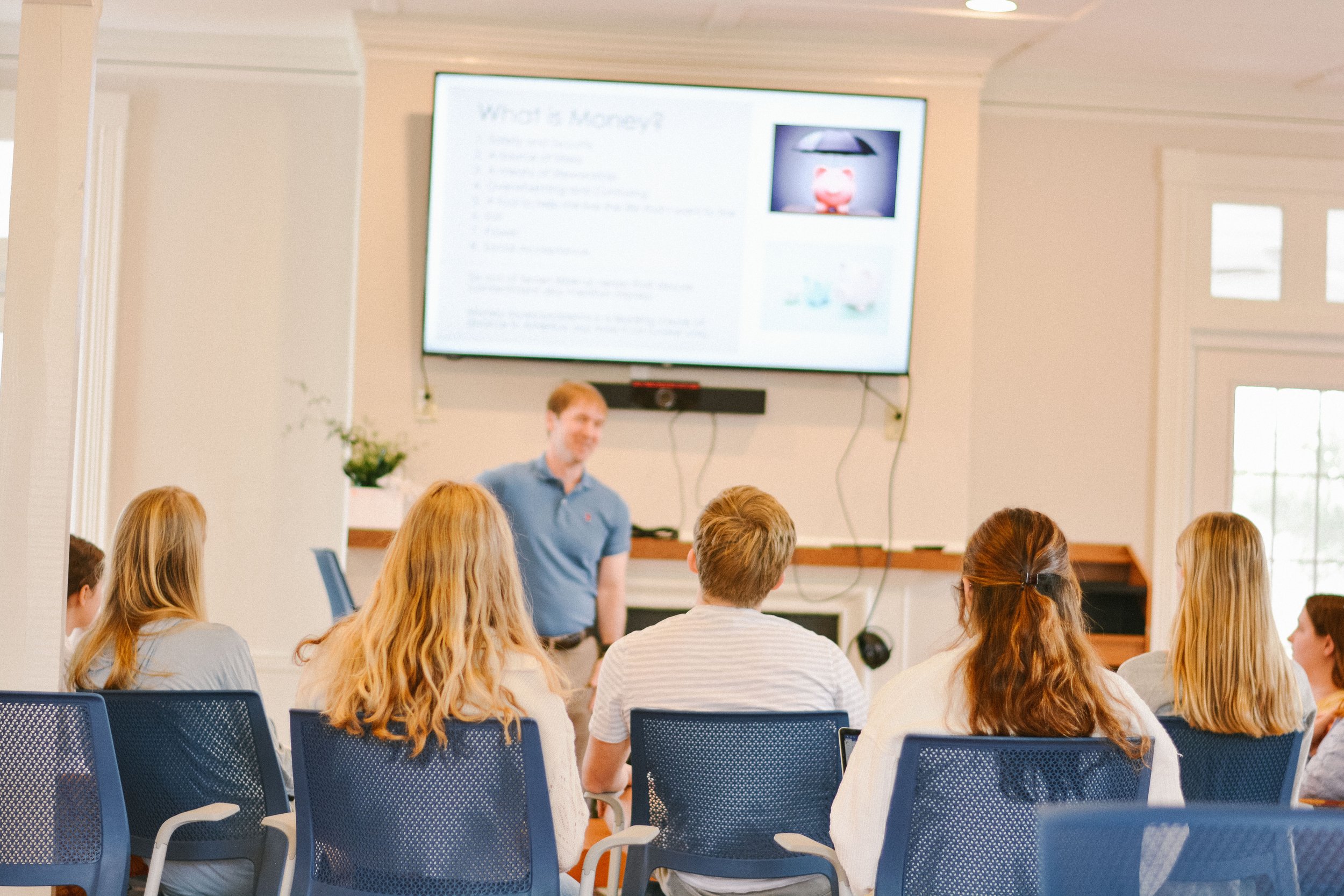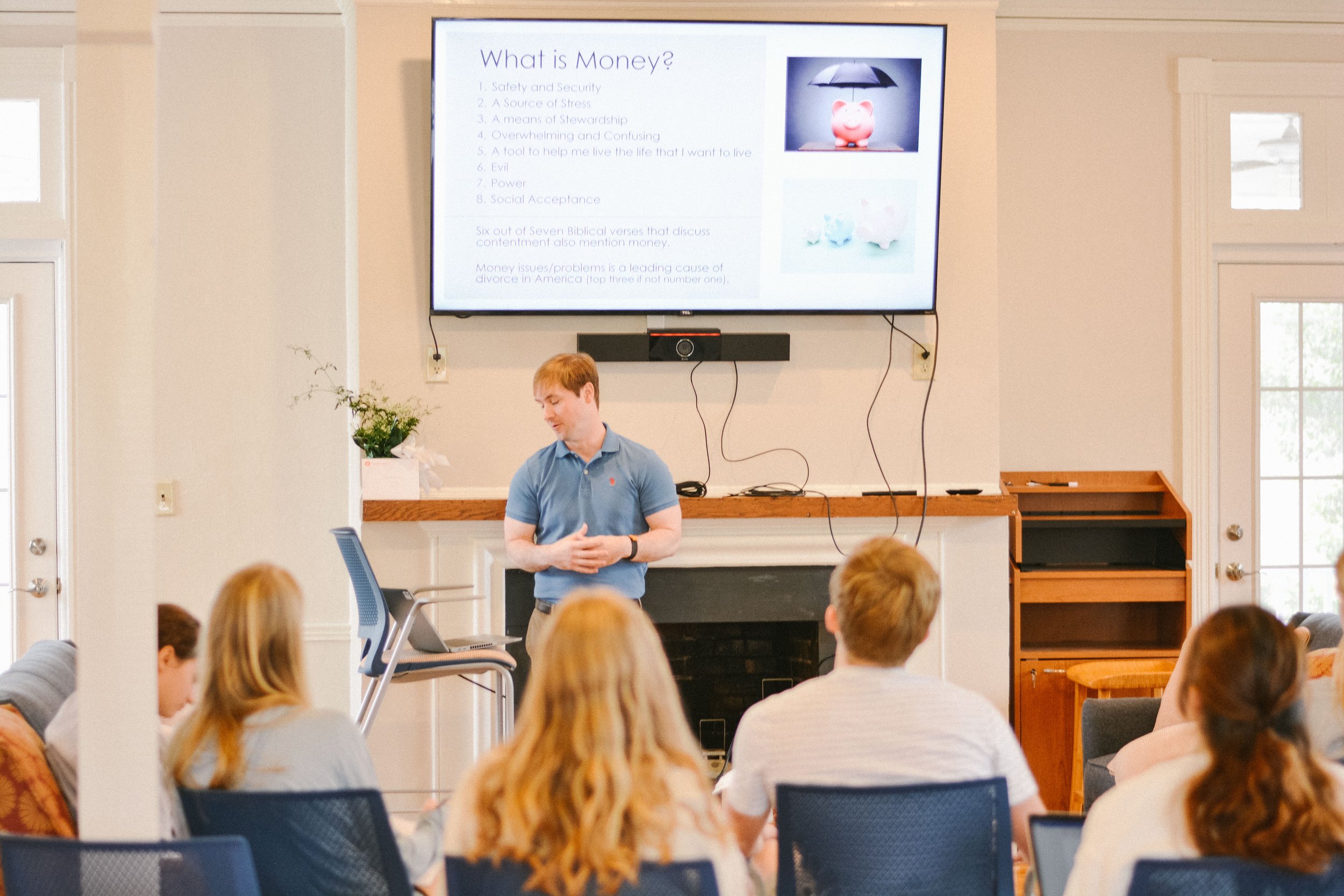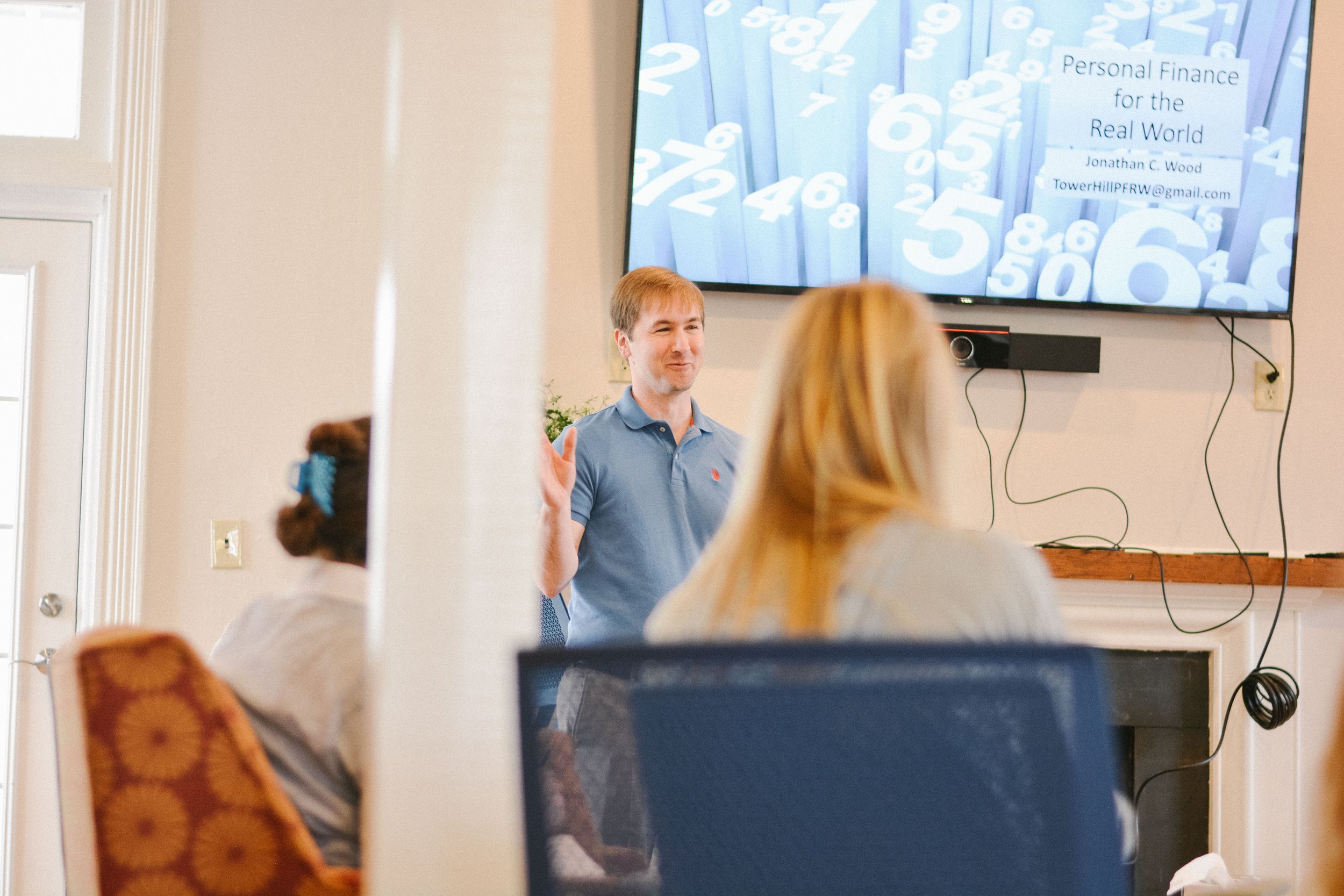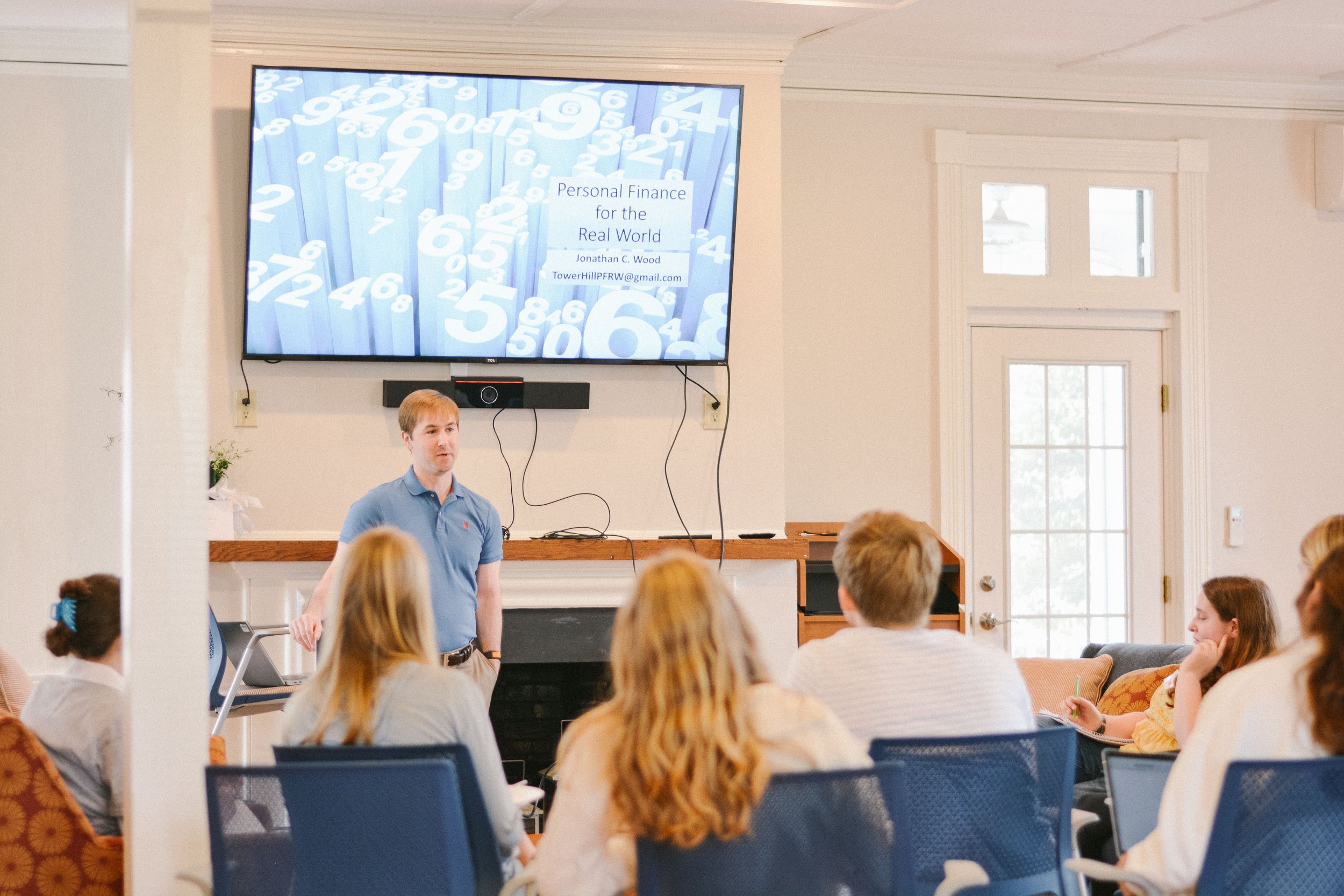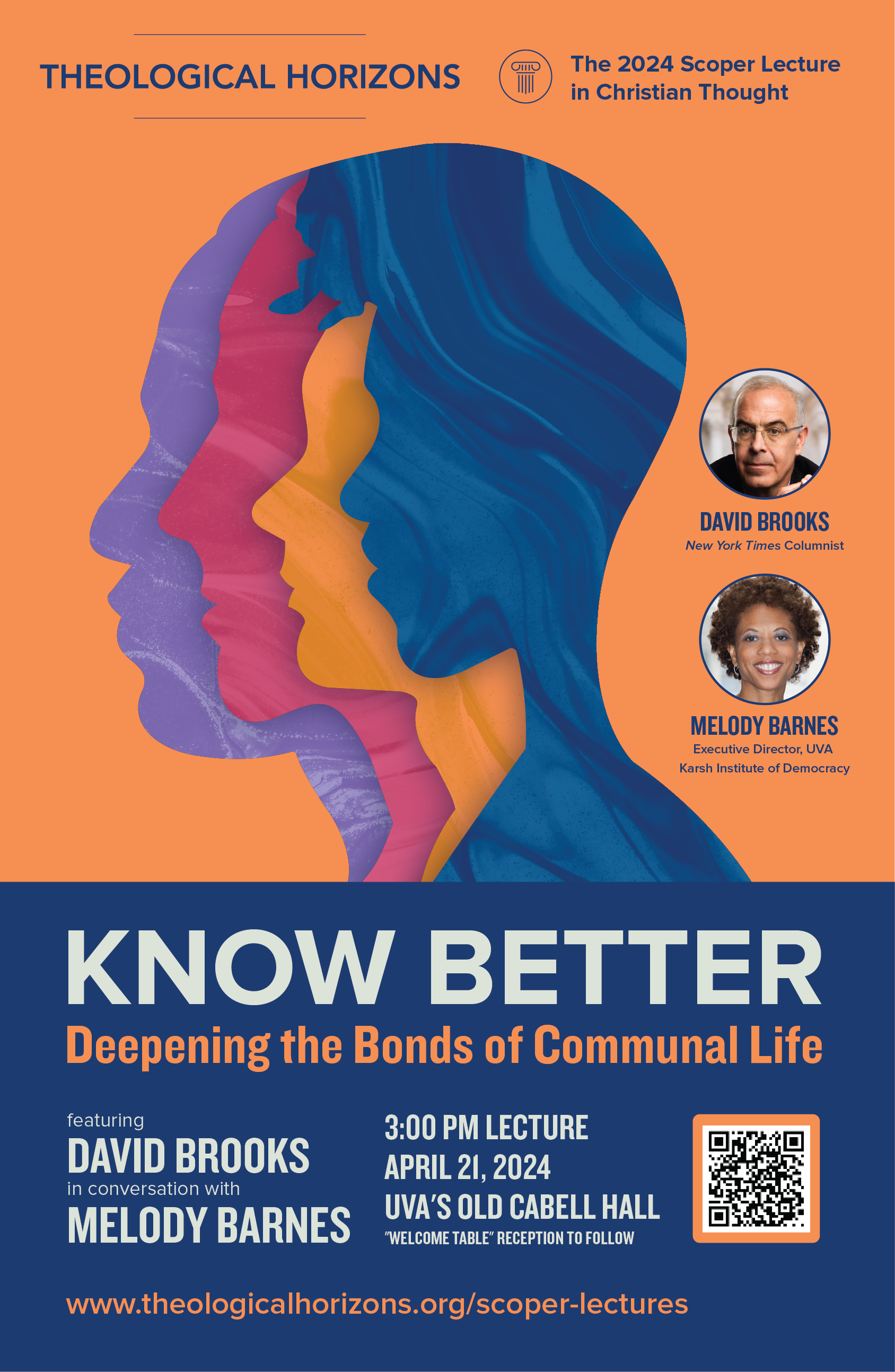The Value of Loving Others | Jase Banks '24
Slavery, The Jim Crow era, Separate but Equal…it goes without saying that the world is not the way it should be as illustrated through concepts such as racism. Racial injustices can be seen throughout American history through the form of segregation and police brutality to name a couple. Throughout the years, several efforts in improving race relations in America came through the form of the Black Lives Matter Movement and the question around cultural appropriation in regards to black face. Despite all the importance we have made in creating an anti-racist society, there are still better solutions.
In Dear White Peacemakers: Dismantling Racism with Grit and Grace, Osheta Moore talks about addressing racism in America through a biblical lens. Moreover, through pointing to Jesus, Moore is able to offer solutions that will in turn have the most positive influence on our society. For example, she points out that we should embrace anti-racism given that the Lord calls us to live a peaceful life, Shalom. I interpret the term ‘Shalom’ as the Lord has called us to live in peace amongst all brothers and sisters across race and nationality because the Lord is the Prince of Peace. Despite the benefits of this approach, it is in a lot of ways easier said than done.
In order to effectively address an issue we must first examine our hearts and minds and try to understand the person who has hurt our perspective as well. In Chi Alpha at UVA, there is a coined phrase that we often use called ‘care fronting’ which is a method of communication that entails caring enough about one’s self, one’s goals and others to confront conflict courageously in a self-asserting, responsible manner.(1) Moore illustrates this approach when addressing white supremacy through praying for them, encouraging them to do better, and setting healthy boundaries. She doesn’t describe the person themselves as racist but rather that they have been influenced from racist ideologies that has plagued the west for several centuries. As Ephesians 6:12 states, “We wrestle not against flesh and blood, but against principalities, against powers, against the rulers of the darkness of this world, against spiritual wickedness in high places” therefore I believe that when we through tearing down the walls that society and America has built up through white supremacy, we can see people for who they trully are.
Moore’s emphasis in her work that we are all one in the kingdom of God which is the Lord’s, which reminds me of the phrase ‘Imago Dei’. This idea of ‘Imago Dei’ further srves as a reminder of how much the Lord holds each and everyone of us in such high regards. In fact, God states that, “he created them in His own image, in the image of God He created them.” (2) I understand this to mean that while my physical identity is black, my true identity is found in Christ given that I am his creation. This idea of everyone being the creation of God is the ultimate solution to addressing the racism that has plagued America for centuries.
1“My Loved One Is Addicted! Part 5 – Confronting vs Care-Fronting.” Adult & Teen Challenge Central Canada, 6 Dec. 2022.
2 Genesis 1:27 NIV
Calling all Illuminators!
In our dark, divided time, Jesus calls us to be Light-bearers: welcoming and generous people who draw others to God, the source of our light.
David Brooks writes that “above almost any other need, human beings long to have another person look into their faces with love and acceptance.” Whenever we see and tend to another, we embody our caring Christ, who enlightens the needy world.
Theological Horizons is committed to the healing work of seeing and being seen, knowing and being known, in Jesus’ name. This is a season brimming with encounter as David Brooks’s Scoper Lecture in Christian Thought, “KNOW BETTER: Deepening the Bonds of Communal Life,” brings people together in-person and online for rich immersive, intergenerational experiences.
From the Charlottesville Welcome Table, book discussion groups, Rotunda Dome Room panel and filmmaker conversation…to fireside student Vintage Lunches, Bible study and leisurely meals with Fellows – in all of these moments the Light of Jesus Christ burns brightly.
Will you help us keep an open house by giving generously – that we might continue to be Light-bearers and to shine where the Gospel witness is needed most? And good news! Each and every gift you give to the ministry of Theological Horizons through June 30 will be matched, dollar for dollar, thanks to the kindness of other “Illuminators.”
As Jesus reminds us: we are here to be light, bringing out the God-colors of the world.
So let’s shine – together!
Karen Wright Marsh, Executive Director
“Shine! Keep an open house;
be generous with your lives.
By opening up to others,
you’ll prompt people to open up with God,
our generous Father in heaven.”
Matthew 5:16, The Message
Essential Photovoice Spring 2024
Essential Photovoice Facilitator Cohort
SPRING 2024
For 4 weeks in October, a group of 5 folks met and participated in a series of facilitated conversations about community using the Essential Photovoice (EPV) dialogue format. EPV is a recent pilot project of TH’s longtime dialogue consultant and friend Essential Partners in collaboration with Interfaith Photovoice (see below). The concept is simple: take photos responding to prompts each week, then come together to share and ask each other questions about the photos.
We had different sharing prompts each week:
Session 1: A picture to help people understand something about you, and a picture that would help people understand something about your community.
Session 2: How and where is your community growing and flourishing?
Session 3: What are your community’s deepest challenges?
Session 4: What has been done to address your community’s challenge(s)? What could be done to address your community’s challenges?
During the last session, the participants had time to create a final culmination of their learning over the month they spent together. They were prompted to flesh out a narrative or theme from all the photos they had taken and present it in a way that made sense to them, or make an emblem that represents the ideal community they would like to strive to create.


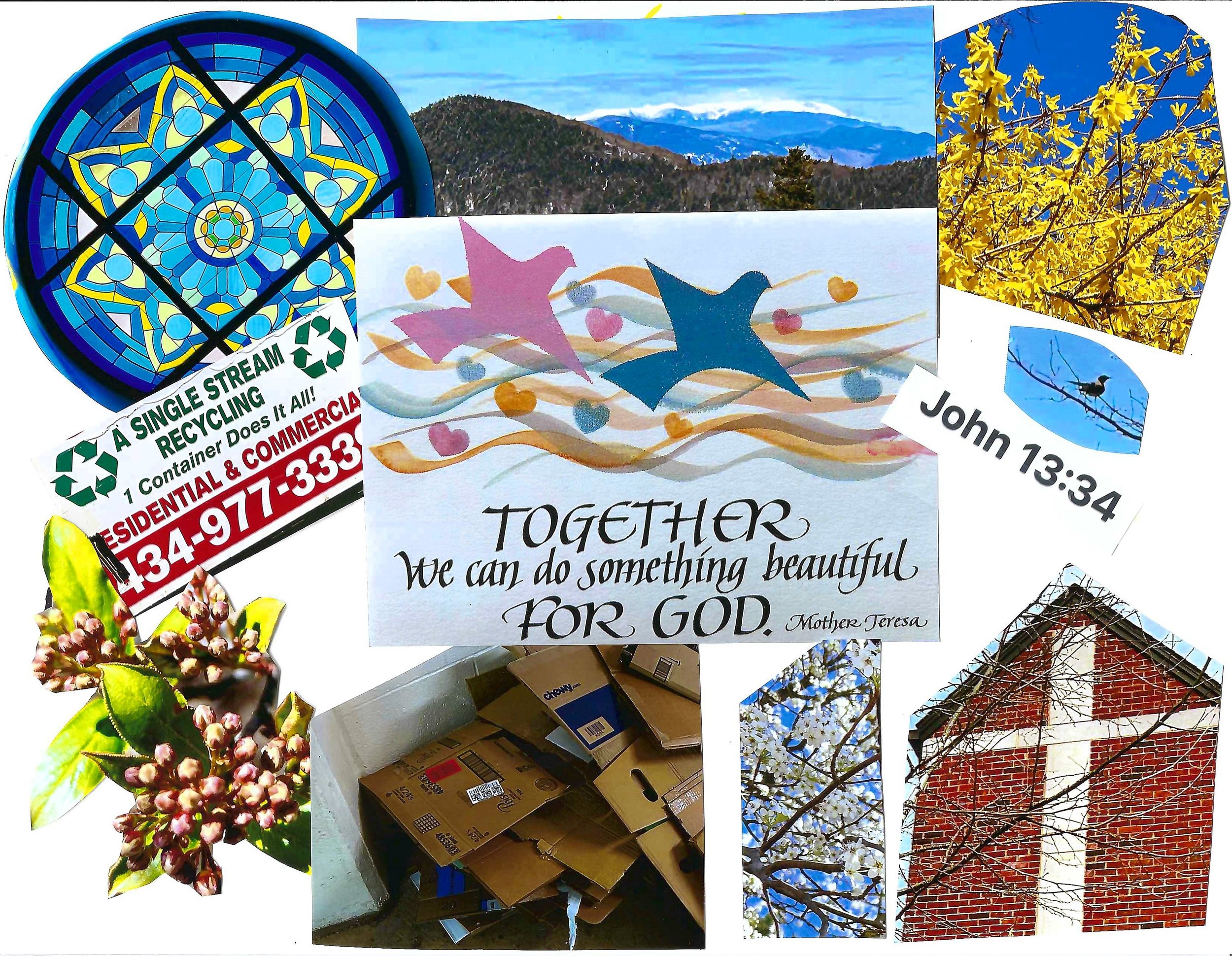

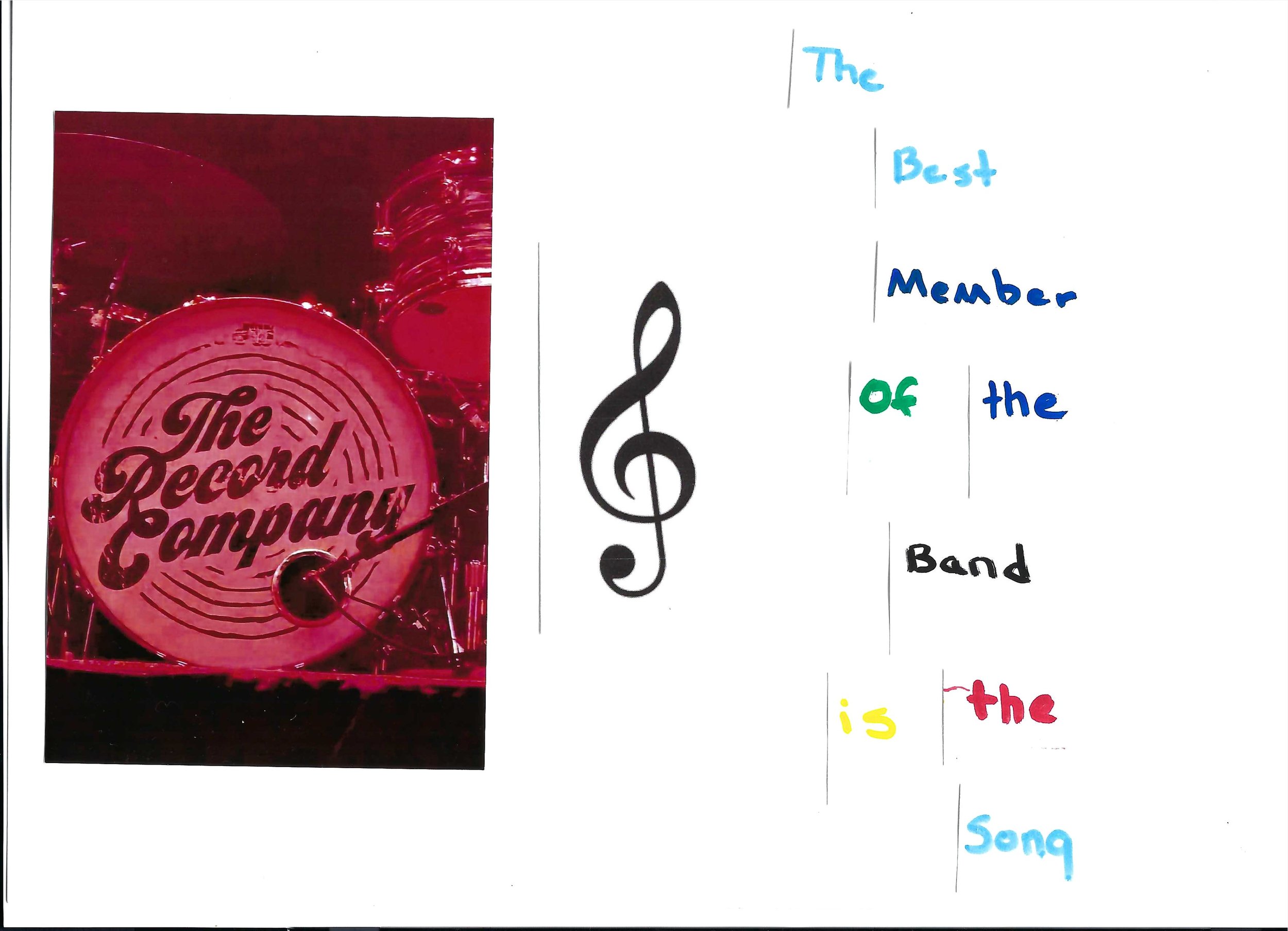

Feedback
All 5 of the facilitators gave the training experience a 4/4 rating. When asked “What stands out as the most significant thing you learned in this workshop? what surprised you most about what you learned?,” they responded:
“I learned to notice my surroundings and intentionally reflect on my role within my community.”
“The willingness to share, as well as common concerns and experiences.
“It was surprising that we are all a part of the Charlottesville community and yet our experiences are so varied and none of our pictures are the same, even if we hoped to use pictures to speak to the same issues or topic.”
When asked “how did this experience impact the way you feel about yourself or your community?,” they responded:
“I think I’ve come to see how I am a piece of my communities and can impact others uniquely through my own experiences and the lens that I see things.”
“It was impactful for me to be able to share my emotions about different events in my life that I didn't even know I had beforehand.”
“I felt that this experience caused me to treasure the joyful moments within my communities more than I have been.”
More about Essential Photovoice
Essential Partners was founded in 1989, with the mission of helping equip people to live and work better together in community by building trust and understanding across differences. Their trademark approach -Reflective Structured Dialogue- empowers people to have healthier, more complex, more inclusive conversations about polarizing differences of values, beliefs, and identities.
Interfaith Photovoice has been around almost as long as EP. It is an arts-based approach to understanding that invites participants to respond to a series of prompts with their own photographs. These photos are used in a series of meetings as the basis for small and large group discussions. At the end of a project, the visuals and narratives are used to engage a broader audience.
Essential Photovoice combines the concepts and methodologies of both approaches to bring more richness to connecting around or across a social issues, and to illuminate and illustrate what is important to those impacted (or inspired!) by curating an exhibition, hosting an event, or collaborating on a tangible item through which other people can engage or better understand that topic.
Faith & Work Forum with Sheri Winston
The Faith & Work Forum is a conversation series on Grounds that discusses the interplay between faith, work, and life. Each semester we feature guest speakers with leadership experience from across a wide range of vocations, who bring authentic stories about seeking a meaningful, purpose-driven life.
On March 28th, we gathered at the Bonhoeffer House to hear from Sheri Winston, the beloved Director of the Rotunda and University Events. Ms. Sheri talked about the different inspiring, weighty, and mundane moments that she has witnessed during her decades in the Rotunda. Whether it’s meeting influential politicians, hosting musical performances, or providing an ear to listen to her team of student staff whenever they need it, Sheri meets the needs of her position and community with the rested assurance of her faith in Christ.
Easter 2024 | An Invitation to Go, Rejoicing, and Tell!
“He is not here; for He is risen…”
AN INVITATION TO GO AND TELL
At dawn, the grieving Marys arrive at Jesus’ tomb as a violent earthquake announces the descent of a lightning-white angel, a dazzling being who rolls back the massive stone and sits upon it, paralyzing the terrified guards. To the women, the angel offers assurance and speaks invitation, “Do not be afraid…Jesus is risen…Come and see...then go quickly and tell….”
Filled with joy and fear, the women begin to run. Then, suddenly, Jesus himself is before them. “Greetings!” he says. The women rush to Jesus, falling to clasp his feet and worship this beloved one whom they saw die, crucified. To these astonished friends, Jesus echoes the angel’s words: “Do not be afraid. Go and tell my brothers…” And off they hasten, rejoicing.
On this Easter day, the risen Jesus speaks to us, along with the whole host of heaven:
Do not be afraid. Go, rejoicing, and tell.
The wintery days of fearing and fasting are past.
The feast of Christ’s resurrection is here.
Let us go, rejoicing, and tell!
“Rejoice and sing now, all the round earth,
bright with a glorious splendor,
for darkness has been vanquished by our eternal King.” (Book of Common Prayer)The air is like a butterfly
With frail blue wings.
The happy earth looks at the sky
And sings.(“Easter” by Joyce Kilmer)
the green of Jesus
is breaking the ground
and the sweet
smell of delicious Jesus
is opening the house and
the dance of Jesus music
has hold of the air and
the world is turning
in the body of Jesus and
the future is possible(“spring song” by Lucille Clifton)
So do not be afraid. Go, rejoicing, and tell:
Alleluia. Christ is risen!
He is risen indeed. Alleluia!
Singing Better Songs | Lilly West '23
“My life flows on in endless song;
Above earth’s lamentation,
I hear the real, tho’ far off hymn
That hails a new creation;
Thro’ all the tumult and the strife
I hear the music ringing;
It finds an echo in my soul–
How can I keep from singing?”
Since this summer, when I interned as a Research Fellow for the Project on Lived Theology, I’ve had one line from my reading echoing within me. Charles Marsh, in his work Welcoming Justice with John Perkins, argued that we must learn to “sing better songs with our lives”1. This year of discernment and decisions has felt like one long question: what song can or should I sing with my life?
When I zoomed into RUF large group from my dorm room as a first year, I heard what I’ve since learned was our grounds minister’s annual welcome sermon: “Who are you becoming?” At its core, this sermon said something like this: these four years are powerful years, what are you seeking and how will it shape you? Reflecting on these words now, they take a different shape in my imagination than they did when I was a first year because my life and priorities look very different (mostly in a good way, I hope). These years have been powerful years, growing, stretching, and teaching years, which have left me (again–hopefully) more in the shape of the Lilly I’m created to be.
This year, my wonderful mentor, Jane Grizzle, gave me Henri Nouwen’s The Inner Voice of Love. In it, Nouwen writes a reminder that we are designed to “enter a new country, where [our] Beloved dwells,” and that this transition “requires the death of what has become so precious to [us]: influence, success, yes, even affection and praise.”2 Our Horizons Fellows summer reading, A Sacred Voice is Calling, argued that “remembering death helps us to get our priorities straight.”
While I agree, I might argue more specifically that as Christians, we must remember not our death, but Christ’s death. Christ’s death and resurrection means that we look forward to union with Christ in the new country3 after we die and that the new country is already peeking through into our lives now so we can be in union with Christ today. We live remembering our death to this world, our death to the old country.
Do not hear in these words an argument to disengage with the world or a call to apathy; it is the opposite. “For freedom Christ has set us free.”4 The body of Christ should reshape our social existence to reflect this liberation and carry it out in the context of our communities. So then, as Martin Luther King, Jr. put it in Letter from a Birmingham Jail, “[t]he question is not whether we will be extremists, but what kind of extremists we will be. Will we be extremists for hate, or will we be extremists for love? Will we be extremists for the preservation of injustice, or will we be extremists for the cause of justice?”5 The freedom of the new country rings out over our fallen land, “repent, for the kingdom of heaven is at hand!”6
Since Christ is Lord of heav’n and earth,
How can I keep from singing?
As Christians, we are heirs7 with Christ of the promised new creation. This means our lives are hidden, or anchored, with Christ in the new country even as we exist in the old country. We have an incarnate God and an incarnate faith. “Sing[ing] a better song with our lives”8 means that our lives in the old country are cruciform, bearing the image of Christ to individuals, communities, and systems we encounter. We “put off the old self with its practices and ...put on the new self, which is being renewed in knowledge after the image of its Creator.”9
Here’s where I’ll make a public confession: I am too weak to walk in the new country on my own. I am too weak to put off my old self. So, as I’m thinking this year with the other Horizons Fellows about calling, constraint, and commitments, I confess that I’ve been, more than anything, afraid. As Nouwen explains, the new country is “where [we] are called to go, and the only way to go there is naked and vulnerable.”10 He testifies that the new country is the source of joy, true joy, and of life, but that he keeps “crossing and recrossing the border.”11
During my time in Charlottesville, surrounded by mentors and friends who’ve invited me to “sing beautiful songs” with them, I’ve felt the joy of the new country peeking into the old. I fear that physical distance from these friends and this place next year will make me forgetful of this joy. I worry, like Nouwen, that I’ll “feel afraid and start longing for all [I] left behind, so [I’ll] go back to the old country,” but I confidently hope that his conclusion is true; that if I venture away from the new country, I’ll “discover that the old country has lost its charm.”12 Looking around at our Horizons Fellows cohort, a group which once felt unfamiliar and intimidating, I see brothers and sisters in Christ who are singing such beautiful songs that I can’t help but sing along with them. Throughout this transition I’ll “risk a few more steps into the new country, trusting that each time [I] enter it, [I] will feel more comfortable and be able to stay longer.”13
“I lift my eyes; the cloud grows thin;
I see the blue above it;
And day by day this pathway smooths,
Since first I learned to love it.14”
1 Charles Marsh, Welcoming Justice, “The Power of True Conversion” (78)
2 Henri Nouwen, The Inner Voice of Love, “Entering the New Country” (21)
3 “Age to come” (Eph. 1:21)
4 Gal. 5:1
5 Martin Luther King, Jr. Letter from a Birmingham Jail.
6 Matt. 4:17 (emphasis mine [but also Jesus’s I think])
7 Gal 3:29
8 Ibid. Marsh
9 Col. 3:9-10
10 Ibid. Nouwen
11 Ibid. Nouwen
12 Ibid. Nouwen
April Prayers | For our Scoper Lecture
“Love must be sincere. Hate what is evil; cling to what is good. Be devoted to one another in love. Honor one another above yourselves. Never be lacking in zeal, but keep your spiritual fervour, serving the Lord. Be joyful in hope, patient in affliction, faithful in prayer. Share with the Lord’s people who are in need. Practice hospitality. Bless those who persecute you; bless and do not curse. Rejoice with those who rejoice; mourn with those who mourn. Live in harmony with one another. ”
DEAR FRIENDS,
This month we’ll be welcoming David Brooks with Melody Barnes for our April 21, 2024, Scoper Lecture, “Know Better: Deepening the Bonds of Communal Life.” The lecture will be followed by flash pop up tables in the ampitheater for 600 people to eat pie and practice getting to know one another better. Then, on Monday in the Dome Room, we’ll hear from a panel of wise leaders who are using stories to help bring social healing.
Throughout all of these events, we pray for God’s spirit to be alive and active in fresh ways. We pray for each one of us to know in our bones our belovedness as we enter into these spaces with others, helping us to cross old divides and build new and lasting connections.
Please join us as we pray!
“When we love and allow ourselves to be loved, we begin more and more to inhabit the kingdom of the eternal. Fear changes into courage, emptiness becomes plenitude, and distance becomes intimacy.”
Loving our Neighbors through Place | Tabi Summers '24
Editors’ note: Horizons Fellows wrestle with questions of faith & vocation within a small cohort during their 4th year. One of the questions we wrestle with is: What does it look like to love our neighbors through our particular places in which we find ourselves? Tabi reflects on that here.
What does place mean to me? How has it shaped me and how do I think of it in relation to my calling? How do my daily habits and attention towards my neighborhood and the land affect my calling?
My dad is a skilled carpenter, but he deferred the career, and the salary, that he could have had, and arguably needed, raising four children on one income. For 35 years, my dad has preferred to devote his high-quality carpentry to people who could not otherwise afford decent home improvements. He has committed himself to offering noble construction at accessible and flexible rates, consistently doing odd tasks and small projects free of charge. My father’s service through place has extended into our own home, opening our home as residence to a series of young men as they find their own footing.
My father’s craft made me aware of my interest in architecture; his honest realization of vocation has inspired my own. As a student of architecture, place means more to me than it does to most people. It can be commonly understood that architecture aims to create place, it is also deeply affected by place. The ways in which architecture responds to place is my primary preoccupation within the study. Architecture is necessarily rooted in site: this includes local and non-local ecologies, accounting for the systems surrounding the design intervention, but architecture also demands consciousness of its resource consumption, and the ecologies impacted by material sourcing. Site also must consider stakeholders, building occupants, and even more temporary observers.
Place is too often misunderstood as static. When people argue that architecture should create a sense of place, they are often asking for the architecture to conform to a historic trend, to preserve a visual sense of place. Place is rarely static, especially when considered in the context of neighborhoods and the community of a place. Relationships and individuals are constantly changing, shifting, even entering and exiting. I found a meaningful motif in John Perkins’s community development ministry. While Perkins refers to these values as the “3 Rs:” Relocation, Reconciliation, and Redistribution, I was struck instead by the repetition of “Re.” In each case, “Re” seems to imply that community development efforts should be cyclical. We should continually return to the efforts that enrich our places. We should maintain a pulse on our community, our place, and its needs.
For example, Jesus relocated among us; Perkins implies that relocation calls us to move outside of our comfort zone to be in proximity, immersed, in communities we aim to serve. My father’s invitation of young men into our home reminds me of this “R.” My father’s continual practice of opening our house to a series of young men, even after difficult experiences with each, reminds me of the “Re” component of this “R.”
Altogether, my attention to place, neighbors, and land, must not be an effort of creating or preservation, but of continual recommitment to vocation, and a cyclical understanding of my aspirations and actions.
Lent VI | To Fast from Certainty
“Why spend money for what isn’t food, and your earnings for what doesn’t satisfy.
Listen carefully to me and eat what is good; enjoy the richest of feasts.
Listen and come to me; listen, and you will live.
”
AN INVITATION TO FAST FROM CERTAINTY…
“When my mother suddenly died, I was thrust into the desert,” spiritual author Christine Valters Paintner recalls. “All of my certainties about God and life were stripped away and I was left raw and frightened. Many people offered trite words and shallow comfort in my grief. They were not willing to sit with my in the darkness, but only hoped to rush me through a place of light.” Have you ever been in such a place?
By journeying into the desert, Jesus showed us how to dwell in life’s border spaces where questions overwhelm answers, where Jesus depended solely “upon every Word that comes from the mouth of God.” (Matthew 4:4)
Patience abides in the wisdom of those ancient Christians who lived in the wilderness --- who tell us to let go, let go, let go, and let go some more, on every level of our lives, to everything we cling to, including, or especially, our ideas about God.
In the book of Job, God challenges Job’s desire for surety and asks, “Where were you when I laid the foundation of the earth?” (Job 38:4) For God is never a set of concepts to be grasped, even tamed, but a relationship to encounter.
… AND EMBRACE MYSTERY AND WAITING
Traveling through the unknown requires humility. It requires loosening our attachment to images of who God is and how God works in the world. Ultimately, the Lenten desert sojourn demands that we open ourselves to the God who is far more expansive than we can behold or imagine.
This sixth week of Lent, you are invited to fast from the places in your life where you crave certainty and sure outcomes and release them to the great Mystery: Father, Son and Holy Spirit. Celebrate a God who is infinitely larger than your imagination and rest in the company of Jesus, who himself once inhabited the wilderness.
This reflection is adapted from A Different Kind of Fast: Feeding our True Hungers in Lent, Christine Valters Paintner.
The Scoper Lecture with David Brooks | Overview
Renowned author and New York Times commentator David Brooks will deliver the 2024 Scoper Lecture in Christian Thought at UVA: the anchor event of an in person and livestreamed community-wide, intergenerational experience.
On Sunday, April 21, David Brooks will speak on the topic “Know Better: Deepening the Bonds of Communal Life” drawing on his book, How to Know a Person: The Art of Seeing Others Deeply and Being Deeply Seen and exploring his sources in Christian thought. The academic lecture will illuminate Brooks’s foundational work on the complexities and urgencies of living well in a democratic society.
Melody Barnes, Executive Director of UVA’s Karsh Institute of Democracy, will then join Brooks onstage to investigate the implications of Brooks’s premise that “there is one skill that lies at the heart of any healthy person...or society: the ability to see someone else deeply and make them feel seen—to accurately know another person, to let them feel valued, heard, and understood.”
The onstage lecture and conversation will be framed by music from The Porter’s Gate, a sacred ecumenical arts collective whose projects include “Neighbor Songs” and “Table Songs.”
The Charlottesville Welcome Table
Sunday, April 21, 4:45pm-5:45pm | Amphitheater | free
Calling all Scoper Lecture guests to enjoy the Charlottesville Welcome Table reception: a special event in the UVA Amphitheater. Gather with us for warm conversations and delicious homemade pie. Let’s reflect on the keynote, practice the art of listening, and turn strangers into friends to deepen the bonds of community.
“Leap of Faith” Filmmaker Conversation
Monday, April 22, 10am-11am | Dome Room | free
Award-winning director Nicholas Ma will speak with UVA’s Chief Creative O cer Matt Weber as he presents exclusive glimpses of his forthcoming film, “Leap of Faith,” a documentary following pastors who test the power of Christ’s call to love God and neighbor — even across deep di erences. Ma’s earlier film “Won’t You Be My Neighbor?” explored the life of Mr. Rogers.
“The Stories That Shape Us: How Sharing Experience Fosters Connection” Monday, April 22, 11am-12pm | Dome Room | free
A panel featuring
Jocelyn Diaz, career film and television executive at Disney, HBO and ABC TV, and executive producer of House of the Dragon
Greg Khalil, co-founder of peacemaking nonprofit Telos and founding member of Narrative 4, a story-centered educational initiative
Ian Solomon, dean of UVA’s Frank Batten School of Leadership and Public Policy, committed to negotiation and conflict resolution
Gayle Jessup White, Monticello’s public relations and community engagement o cer and author of Reclamation: Sally Hemings, Thomas Je erson, and a Descendant's Search for Her Family's Lasting Legacy
moderated by Anne Snyder, editor-in-chief of Comment magazine hosted by Sheri Winston, associate director for the UVA Rotunda and Major Events with a “flash” story by Abdallah Aljerjawi, UVA nursing student
Book Discussion Guide
Get the conversation started with our free discussion guide to How To Know A Person: The Art of Seeing Others Deeply and Being Deeply Seen, created by the team at Theological Horizons. Find it on our website.
At Theological Horizons, we create communal and individual experiences that bring together rich intellectual ideas with an immediate practice of attention and compassion, drawing on the riches of Christian thought – that we trust will yield a measure of personal and spiritual knowing, even as we stand, quite literally, amidst the complex legacy of one of America’s greatest Universities.
The Scoper Lecture in Christian Thought is an annual series that brings eminent speakers to the university to deliver public lectures exploring the breadth of Christian expression in the arenas of scholarship, science and medicine, the arts, and culture. The series is an initiative of Theological Horizons, a community-campus not-for-pro t, in partnership with The Project on Lived Theology at UVA.
Lent V | To fast from Planning & Deadlines
“Why spend money for what isn’t food, and your earnings for what doesn’t satisfy.
Listen carefully to me and eat what is good; enjoy the richest of feasts.
Listen and come to me; listen, and you will live.
”
AN INVITATION TO FAST FROM DEADLINES AND PLANNING…
I love a to-do list, a plan. But when my noisy mind is chattering with details, deadlines, and agendas, I easily miss the voice of God actually speaking into my life – calling me into things better than those my planning mind intends.
We who are always moving into our imagined futures lose the opportunity to notice new visions from Jesus; we fail to receive guidance toward new directions we haven’t expected. Looking ahead, we don’t look down to see the fresh, green life unfurling at our feet – quite literally, on this early spring days.
… AND EMBRACE UNFOLDING AND RIPENING
“I am the true vine,” Jesus says. “Abide in me as I abide in you. Just as the branch cannot bear fruit by itself unless it abides in the vine, neither can you unless you abide in me. I am the vine; you are the branches.” Jesus reminds us of our organic nature. Branches don’t design their own futures; they grow, unfold and bear fruit by abiding. We too are rooted in the One greater than ourselves --- and in this rooting we receive nourishment to ripen in the world. For Jesus reminds us, “Those who abide in me and in them bear much fruit, because apart from me you can do nothing.” (John 15:1-5)
This fifth week of Lent, you are invited to fast from your desire to control the direction of your life. Open yourself to the grace of silence, in which beauty comes alive and you see, with open eyes, things already emerging.
You might respond to this invitation by stepping outside. Take time for a slow, contemplative walk –without any destination or time constraint. As you walk, stay alert for the shimmering moments around you; allow yourself to pause. Pay special attention to how the world is budding, unfurling, emerging around you. In silence, listen for God’s voice speaking love and blessing over you. Abide in Him.
This reflection is adapted from A Different Kind of Fast: Feeding our True Hungers in Lent, Christine Valters Paintner.
Lent IV | To fast from Holding it all Together
“Why spend money for what isn’t food, and your earnings for what doesn’t satisfy.
Listen carefully to me and eat what is good; enjoy the richest of feasts.
Listen and come to me; listen, and you will live.
”
AN INVITATION TO FAST FROM HOLDING IT ALL TOGETHER…
In the face of grievous loss, do you bravely pull yourself together, carry on with life? In our armored efforts to keep sorrow from spilling into our days, you and I carry the burdens of blocked emotions: tightness, tension, pretense. Could there be another way to live with grief – sadness for ourselves, our loved ones, our world? Might we follow in the way of Jesus, who, upon the death of Lazarus was “greatly disturbed in spirit and deeply moved,” and wept along with his friends? (John 11:32-35)
… AND EMBRACE TENDERNESS AND VULNERABILITY
“Tears and weeping…bespeak a promise. In fact, they are the only way into the heart.” (John Chryssavgis) Ancient Christians spoke of the “gift of tears:” tears that express grief and tears that soften the defended places in our lives, places where we have turned from God. Through the gift of tears, our hardened shells are punctured, and we know more of who we are in Christ, free from false courage whenever we feel anxious or sad.
This fourth week of Lent, may we give way to vulnerability, to tenderness. If tears come, may they bathe us in God’s grace, recalling the promise: “You have collected all my tears in a bottle.” (Psalm 56:8)
God of our weeping,
Hold us in our times of loss, be with us as we give expression to our love.
Bathe us in the brine of healing, gather our tears in your vial, wash us clean.
When we reach for strength and resist our sorrow, be a sanctuary for us.
Show us the river of our sobs and the great sea of collective grief it meets.
Let wave upon wave carry us to the shores of your Love.
Remind us we are not alone in our sense of loss,
Sanctify our tender places, make holy our humanity.
Help us to know grief and joy as sisters,
How loss carves us out, making room one day for a newfound delight.(Christine Valters Paintner)
This reflection is adapted from A Different Kind of Fast: Feeding our True Hungers in Lent, Christine Valters Paintner.
Lent III | To fast from Speed & Rushing
“Why spend money for what isn’t food, and your earnings for what doesn’t satisfy.
Listen carefully to me and eat what is good; enjoy the richest of feasts.
Listen and come to me; listen, and you will live.
”
AN INVITATION To fast from speed and rushing
Do you feel stretched thin by commitments, needs and demands? Depleted by rushing --- yet at a loss to make a change? In our culture, being busy is a mark of a full, desirable life, a measure of our value as productive people. As we speed from one thing to another, we skim over the surface of life, losing that sacred attentiveness that brings forth revelations in the most ordinary of moments.
From the first verses of Genesis, God calls us to another way. Having made all of creation over six “good” days, the Author of Time took a break. God didn’t apologize for it, wasn’t dramatic about it. God rested because God wanted to rest, plain and simple. And this Sabbath day of rest was even better than “good” – God called it “holy.”
… AND EMBRACE SLOWNESS AND PAUSING
Instead of centering work and productivity, we are invited to shift our priorities, to center God as the primary focus of our lives, the source of our value.
The monastic tradition lifts up the simplest of practices: to stop one thing before beginning another. What might it be like to allow just a five minute window to sit in silence between appointments? Or to take five long, slow deep breaths before pushing on to the next thing? Could we plan for holy pauses in which to savor God’s good presence?
We think of our in-between times as wasted moments and inconveniences, yet these thresholds are opportunities to awaken the gifts that are right here with us. (How often do we miss these, waiting on the relief we imagine is out there, beyond our never ending labors?)
Theologian Howard Thurman writes: “One could not begin the cultivation of the prayer life at a more practical point than deliberately to seek each day, and several times a day, a lull in the rhythm ofdaily doing, a period where nothing happens that demands active participation.” This lull of being rather than doing is a holy pause. “The moment of pause, the point of rest, has its own magic,” Thurman assures us.
This third week of Lent, may you offer yourself the gift of small thresholds, those moments when you let go of what came before and prepare yourself to enter fully into what comes next. May you sink into the sheer grace of the moment. Let us all listen to our true hunger for holy pauses: spaces where God can work.
This reflection is adapted from A Different Kind of Fast: Feeding our True Hungers in Lent, Christine Valters Paintner.
** Image of Tricia Hersey, founder of the Nap Ministry and author of Rest is Resistance.
Lent II | To fast from Worry
“Why spend money for what isn’t food, and your earnings for what doesn’t satisfy.
Listen carefully to me and eat what is good; enjoy the richest of feasts.
Listen and come to me; listen, and you will live.
”
AN INVITATION TO FAST FROM WORRY…
“How can I rest if I have to pay the bills?” Tricia Hersey poses this “desperate and valid” question in her book, Rest is Resistance. For those of us plagued by a sense of scarcity, perpetual anxiety for the future keeps us exhausted. We feel a lack of funds, of time, of love, of control, of hope. The torrent of fearful thoughts rise up in our minds and fire our efforts to secure our own wellbeing and the security of the ones we love, our neighbors, our world.
Walter Bruegemann reminds us that the practice of Sabbath emerged from the Exodus story, where the Israelites were freed from the relentless labor and productivity of the pharaoh system. God acted to liberate his people from enslavement, yes, but also from the anxiety that deprivation brings. God called for the discipline of rest.
… AND EMBRACE TRUST IN GOD’S ABUNDANCE
“What if what is central to God’s reality is not the mechanistic, utilitarian survival of the species, but the exuberant abundance of Creation and New Creation?” asks artist-theologican Makoto Fujimura.
In the face our culture’s demand for accomplishing and achieving and possessing, the God who celebrates abundance has already granted us the good gift of simply being. The practice of sabbath freedom must come now, even in the midst of the world’s anxious messages of scarcity. For as Thomas Merton writes, “Here is the unspeakable secret: paradise is all around us and we do not understand.”
Rest and restoration may come in small ways: closing one’s eyes to daydream for ten minutes or catnapping in the middle of the day. To love freely, to give of one’s time generously, to practice compassion without bounds. We are called to do this for ourselves and for others – out of God’s unlimited surplus.
This second week of Lent, might we fast from worry over scarcity and fear for the future – in order to trust in God’s abundance lavished upon us? Let us listen to our true hunger for contentment in this present moment and cultivate hope in the fullness of life in Christ.
Carry this blessing into the coming week:
Holy Spirit of generous abundance, remind us that there is always more than enough:
enough food, enough love, enough time, enough resources.
Help us to see how our patterns of living in separation and disconnection amplify our scarcity.
Bring us into the joy and challenge of community where bread divided multiplies,
where laughter shared overflows.
Empower us to share freely from our own abundance with others in need.
Slow us down to see how time expands when we breathe and pay attention.
Bless us in our efforts to trust in God’s goodness:
the Love that pulses through the world, sustaining it moment by moment.
Give us the courage to speak out when resources are distributed unfairly,
so we may remind others that there is more to share.
Encourage us to release that which we no longer need to hold onto so tightly.
Inspire us to live in a way that witnesses to our trust in the lavish fullness of life in Christ.
This reflection is adapted from A Different Kind of Fast: Feeding our True Hungers in Lent, Christine Valters Paintner.
Lent I | A Different Kind of Fast
“Why spend money for what isn’t food, and your earnings for what doesn’t satisfy.
Listen carefully to me and eat what is good; enjoy the richest of feasts. Listen and come to me; listen, and you will live.
”
AN INVITATION TO FAST FROM MULITASKING AND INATTENTION…
We are tempted to think that in our busy lives multitasking will somehow make us more efficient, productive and happy. We scatter our gaze between so many things, but don’t we discover that inattention leaves us dissatisfied and undernourished? Writer Cole Arthur Riley puts it this way: “We have found ourselves too busy for beauty. We spin our bodies into chaos with the the habits and expectations of the dominating culture, giving and doing and working.” Distraction is seductive because it makes no demands on us, but ultimately our deep hunger for what is true, beautiful and holy calls us through the veil of our diversions – if only we will listen.
… AND EMBRACE FULL PRESENCE TO THE MOMENT
God invites us to fully experience our inner and outer lives, so filled with grace and beauty, pain and forgiveness. God calls us to behold --- not to stare or to glance, not take a quick scan or a presuming look, but to see with the reflective and reverential quality that is beholding. When we behold, we release our expectations of what we think we will see and receive what is actually there; in the process, everything can shift. We simply cannot multitask and behold at the same time. Seeing this way takes time and patience.
Riley describes the loving looking that God desires for us: “a fidelity to beholding the divine in all things. In the field, on the walk home, sitting under an oak tree that hugs my house. A sacred attention.” (from This Here Flesh)
This week of Lent, might we fast from multitasking and inattention – in order to behold? Let us listen to our true hunger for a slow and spacious way of seeing God and the world.
You can begin right now by taking 8 minutes and 37 seconds to listen to The Jesus Collective sing, “Behold the Beauty.”
This reflection is adapted from A Different Kind of Fast: Feeding our True Hungers in Lent, Christine Valters Paintner.
*Image by Kreg Yingst. Slowness & Pausing, original block print.
Life and How to Live it Panel Discussion
We know navigating the college years and next steps is hard! SO, we hosted a panel discussion featuring three wise friends: a life coach, a career counselor and a therapist. Learn more about what they do, why they do it and how they got there during this candid conversation.
Jonathan Wood Flash Finance Workshop
Back by popular demand! We’re offering another flash personal finance workshop with Jonathan Wood. In this 3 hour block, students learned about the basics of handling money, including:
the basics of assets vs. liabilities
how to determine your true hourly wage
the difficulties of purchasing a home and common mortgage mistakes
the pervasive and destructive mechanics of credit card debt
different types of investments
retirement plans
marriage and finances
the importance of starting to save monthly as early as possible
“Money is Time. How many hours of your life are you willing to trade for your next purchase?”
The secret to mastering our current financial landscape and getting out of the “rat race”? Wood says that instead of using your monthly income for only liabilities, invest in different assets that will make and generate income for you in the future. Eventually, your assets are able to generate income to pay for your monthly expenses without using your "paycheck" or hours of your life. When your investments and passive income streams are able to pay all of your monthly expenses then you have reached financial independence. Now, you are able to work because you want to, not because you have to.
“My most successful clients are those with multiple streams of income from various assets.”
The key to budgeting? Create an Anti-Budget: determine the amount of money you need to save to reach the goal of financial independence at your target age and consider everything else spendable. This eases the shame and guilt of spending while also ensuring financial stability since you have already "paid yourself first".
New to investing? Jonathan advises you to be honest with yourself about whether you can handle the ups and downs of a market as a long-term investor, or whether you’re looking for a short-term payoff. Research a few companies that you know well and evaluate whether the dividends will help you pay your bills.
Thinking about getting a credit card? DON’T BOTHER, says Jonathan. Credit card companies want you to max out your card or only pay the minimum mandatory payment every month and incur credit card debt, which Jonathan calls financial cancer, as you can spend decades paying astronomically more than what your original loan was in interest payments alone. If you have to use a credit card to boost your credit score, spend it only on gas once a month, or another regular payment that you pay off in full. The alternative? Always use cash. It has been scientifically proven that people spend 36-47% less when they use cash consistently instead of a credit or debit card.
Worried about student loans? While this is a very personal and often emotional topic, it may be better, says Jonathan, to save monthly for your future instead of rushing to pay off your student loans as fast as possible, as student loan interest rates are typically competitive (although some private lenders have higher rates then government loans) and you do not want to lose the time value of money by delaying your long-term investment plan to pay off a loan that has (typically) a ten year pay-off schedule.
Jonathan also stressed that everyone's situation is different and that while these ideas and strategies have worked well and led to positive results for many people over the years, they are not specific recommendations for any one individual.
Scoper Resources & Companion Events 2024
THE 2024 SCOPER LECTURE IN CHRISTIAN THOUGHT
Old Cabell Hall at the University of Virginia
April 21, 2024 at 3:00pm
“KNOW BETTER: DEEPENING THE BONDS OF COMMUNAL LIFE”
with David Brooks
in conversation with Melody Barnes
Renowned author and New York Times commentator David Brooks will deliver the April 21, 2024, Scoper Lecture in Christian Thought in Old Cabell Hall at the University of Virginia: the anchor event of an in person and livestreamed community-wide, intergenerational experience.
David Brooks will speak on the topic “Know Better: Deepening the Bonds of Communal Life” drawing on the themes of his new book, How to Know a Person: The Art of Seeing Others Deeply and Being Deeply Seen and exploring his sources in Christian thought. The academic lecture will illuminate Brooks’s foundational work on the complexities and urgencies of living well in a democratic society.
Melody Barnes, Executive Director at UVA’s Karsh Institute of Democracy, will then join Brooks onstage to investigate the implications of Brooks’s premise that “there is one skill that lies at the heart of any healthy person, family, school, community organization, or society: the ability to see someone else deeply and make them feel seen—to accurately know another person, to let them feel valued, heard, and understood.”
The onstage lecture and conversation will be framed by music from The Porter’s Gate, a sacred ecumenical arts collective whose projects include “Neighbor Songs” and “Table Songs.”
The Charlottesville Welcome Table reception will follow the lecture
Sunday, April 21, 4:45pm-5:45pm | Amphitheater | free
Calling all Scoper Lecture guests to enjoy the Charlottesville Welcome Table reception: a special event in the UVA Amphitheater. Gather with us for warm conversations and delicious homemade pie. Let's reflect on the keynote, practice the art of listening, and turn strangers into friends to deepen the bonds of community.
Join us the following day for
“Leap of Faith” Filmmaker Conversation
Monday, April 22, 10am-11am | Dome Room | free
Award-winning director Nicholas Ma will speak with UVA’s Chief Creative Officer Matt Weber as he presents exclusive glimpses of his forthcoming film, “Leap of Faith,” a documentary following pastors who test the power of Christ’s call to love God and neighbor -- even across deep differences. Ma’s earlier film “Won’t You Be My Neighbor?” explored the life and lessons of Mr. Rogers.
“The Stories That Shape Us: How Sharing Experience Fosters Connection”
Monday, April 22, 11am-12pm | Dome Room | free
Jocelyn Diaz, career film and television executive at Disney, HBO and ABC TV, and executive producer of House of the Dragon
Greg Khalil, co-founder of peacemaking nonprofit Telos and founding member of Narrative 4, a story-centered educational initiative
Ian Solomon, dean of UVA’s Frank Batten School of Leadership and Public Policy, committed to negotiation and conflict resolution
Gayle Jessup White, Monticello’s public relations and community engagement officer and author of Reclamation: Sally Hemings, Thomas Jefferson, and a Descendant's Search for Her Family's Lasting Legacy
moderated by Anne Snyder, editor-in-chief of Comment magazine
hosted by Sheri Winston, associate director of UVA Rotunda and Major Events
with a “flash” story by Abdallah Aljerjawi, UVA nursing student
We're hiring! A Full-time Leadership Associate & Part-time Interns
FULL-TIME LEADERSHIP ASSOCIATE
We’re excited to let you know about an exciting opportunity. Theological Horizons is partnering with the Consortium of Christian Studies Center to hire for a completely new post-grad Leadership Associate position.
The Consortium’s Internship Program provides training, development and coaching for recent college graduates up to age 26 serving at Christian Study Centers for one year. Interns receive experience in programming, operations and fundraising, and they develop a better understanding of their vocational goals and their place in God’s kingdom.
On a day-to-day basis, interns work with Theological Horizons staff to provide programming and opportunities for students. Over the course of the year, interns benefit from exposure to the study center movement through the Consortium’s Annual Meeting and other opportunities to interact with interns and staff at other study centers and foundations.
This is a full-time, paid internship that includes a vocational mentor and ongoing training with a cohort of other young professionals. A salary and housing are provided.
We hope you or someone you know will submit and application! Feel free to email Karen@theologicalhorizons.org or Erin@theologicalhorizons.org with any questions!
PART-TIME VINTAGE LUNCH INTERNS: VOCATIONAL DISCERNMENT THROUGH CAMPUS MINISTRY
Up to 2 Vintage Fellows explore vocational discernment through leadership in the campus ministry of Theological Horizons at the University of Virginia. They are the logistical team behind our weekly Vintage Lunch series. In additional to coordinating the lunch, Interns have a chance to glean from the Vintage Lunch curriculum and apply the teachings and lessons from faithful Christan saints & sinners to their own lives. The Vintage Lunch Intern gains intensive and wide-ranging experience in event planning & volunteer management and an up-close background in small non-profit management. Vintage Intern Applications will be accepted until filled. This is a paid, hourly position averaging roughly 6 hrs per week.
To learn more about the Vintage Intern program, talk to Mary-Dryden Maio at Vintage lunch any Friday or email her at mary-dryden@theologicalhorizons.org
Apply to be a Fellow for '24-'25!
The Theological Horizons Fellows Programs supports students as they wrestle through concepts of Calling through Constraints and Commitments, reflecting Theological Horizons’ commitment to discover Christ at the intersection of faith, thought, and life. Fellows are selected through a competitive application process and, except for the Perkins Fellows, must be Fourth Years who will soon transition from college. Each Fellow or Intern is placed into one of three cohorts with a particular vocational focus:
HORIZONS FELLOWS: VOCATIONAL DISCERNMENT THROUGH INTENSIVE RELATIONAL DISCIPLESHIP
Ten Horizons Fellows explore vocational discernment through intensive relational discipleship, guided by Mentors from varied careers, with a focus on developing a theologically rich understanding of personal calling to be pursued in all arenas of work and life.
Through a fall retreat, monthly discussions as a cohort of Fellows, individual meetings with Mentors and the Program Director, and large group lectures and workshops, we guide them to sense the horizon where the limitless sky and the concrete earth meet.
PERKINS FELLOWS: VOCATIONAL DISCERNMENT THROUGH COMMUNITY ENGAGEMENT
Five Perkins Fellows explore vocation through weekly community engagement. Named after the great Christian community development leader John M. Perkins, this program builds bridges between the University and the community through mutually-beneficial service-learning partnerships. Perkins Fellows are placed with a community partner to connect their learning through service and theological reflection. Fellows receive mentoring and training in cross-cultural engagement and community development, with an eye towards vocational discernment in these fields of work.
Participation in the Fellows is by application each spring. This year's deadline is March 11, 2024.
To learn more about the Horizons or Perkins Fellows programs, talk to Christy Yates at Vintage lunch on Fri, Feb 2nd or email her at christy@theologicalhorizons.org









